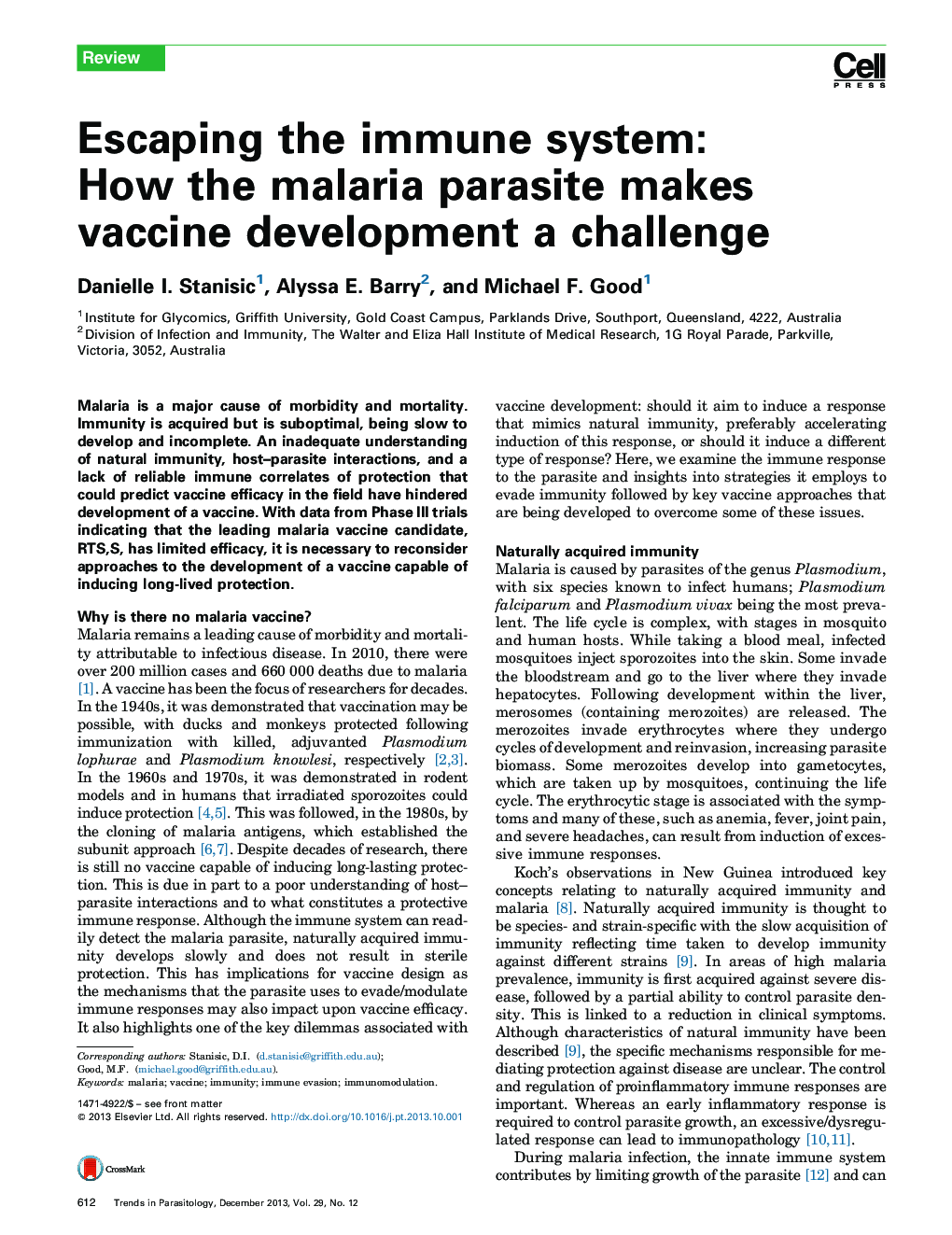| کد مقاله | کد نشریه | سال انتشار | مقاله انگلیسی | نسخه تمام متن |
|---|---|---|---|---|
| 3423321 | 1227017 | 2013 | 11 صفحه PDF | دانلود رایگان |

• Immunity against the malaria parasite is suboptimal.
• Knowledge of antimalaria immunity and host–parasite interactions is incomplete.
• The malaria parasite is able to evade and modulate the immune response.
• Current malaria vaccines are unable to induce robust, long-lived protection.
• Insights into how the parasite evades immunity will inform vaccine development.
Malaria is a major cause of morbidity and mortality. Immunity is acquired but is suboptimal, being slow to develop and incomplete. An inadequate understanding of natural immunity, host–parasite interactions, and a lack of reliable immune correlates of protection that could predict vaccine efficacy in the field have hindered development of a vaccine. With data from Phase III trials indicating that the leading malaria vaccine candidate, RTS,S, has limited efficacy, it is necessary to reconsider approaches to the development of a vaccine capable of inducing long-lived protection.
Journal: - Volume 29, Issue 12, December 2013, Pages 612–622